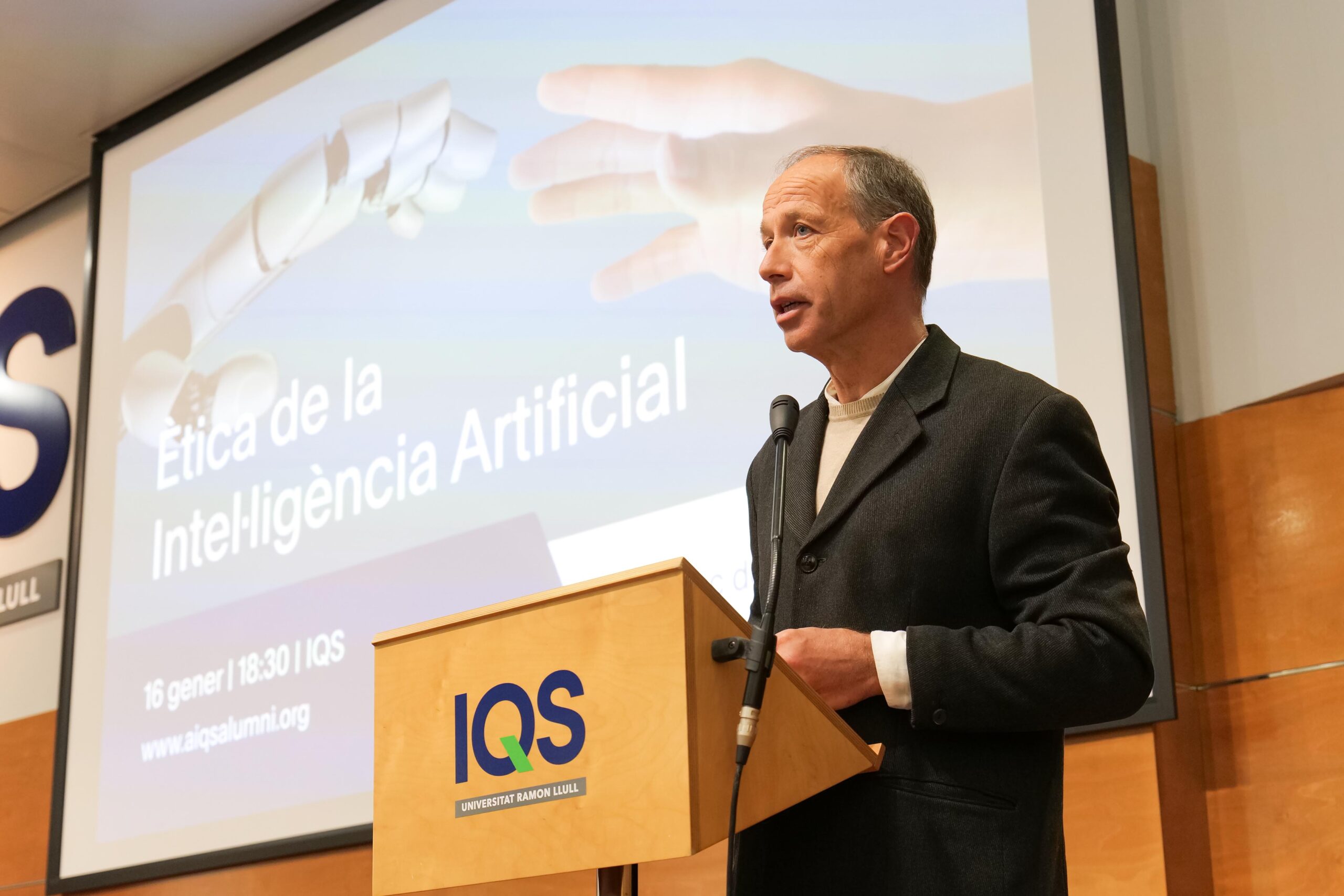The renowned philosopher and theologian Francesc Torralba was the keynote speaker at IQS last Friday for the conference “The Ethics of Artificial Intelligence” hosted by IQS Alumni. During his presentation, he explored the ethical challenges posed by the expansion of generative artificial intelligence in society and organizations and stressed the urgency of creating interdisciplinary commissions to guide its development. The event also featured participation by Miquel Gassiot Matas, rector of the URL between 1994 and 2002 and a graduate in chemical engineering from IQS-URL.
IQS Hosts a Conference on Ethics and Artificial Intelligence Led by Francesc Torralba

Exponential technological disruption
Torralba described the current moment as an “exponential technological disruption” that affects every aspect of life, from work and personal relationships to research and information. He explained how there are two predominant perspectives with regard to this reality: a technophilic view that celebrates the opportunities of artificial intelligence and a technophobic one that emphasizes risks such as dehumanization and social control. According to the philosopher, the challenge is to find a balance between these two positions.
“Ensuring the transparency of algorithms and their explainability is essential, but not easy,” said Torralba. He pointed out that the specialized languages of technology make it difficult for society to understand its processes. This disconnection turns AI into a “dark box” that prevents critical judgment.
Human decisions in the hands of AI
One of Torralba’s central concerns was the growing role of AI in decision-making, a faculty reserved to humans until recently. He stressed that AI is not a conventional tool, but a technology that learns and evolves, which requires deep reflection on what decisions should be delegated to it and under what criteria.
“We can’t waste time on hypothetical debates about the distant future of AI, but we should focus on current challenges and ensure proper use of it,” he stated.
Inclusion and plurality: keys to responsible development
Another prominent theme was the need to address the digital divide that can exclude many people from the new technological paradigm. For Torralba, it is imperative to establish interdisciplinary commissions that evaluate algorithms and their criteria in an inclusive way. “These commissions must reflect the diversity of society, including young people, the elderly, and representatives from different cultures and religions,” he argued. Nevertheless, he admitted that diversity complicates reaching consensus, but he also pointed out that it guarantees greater representation.
The role of higher education in AI ethics
In his final reflections, Torralba stressed that the ethics of artificial intelligence must be addressed in the community, combining technical and humanistic knowledge. “A humanist does not understand the technical innards and a technologist has difficulty identifying ethical dilemmas,” he said. For this reason, he believes that universities are an ideal place to promote dialogue and analyse these issues by promoting collaborative and pluralistic ethics.









